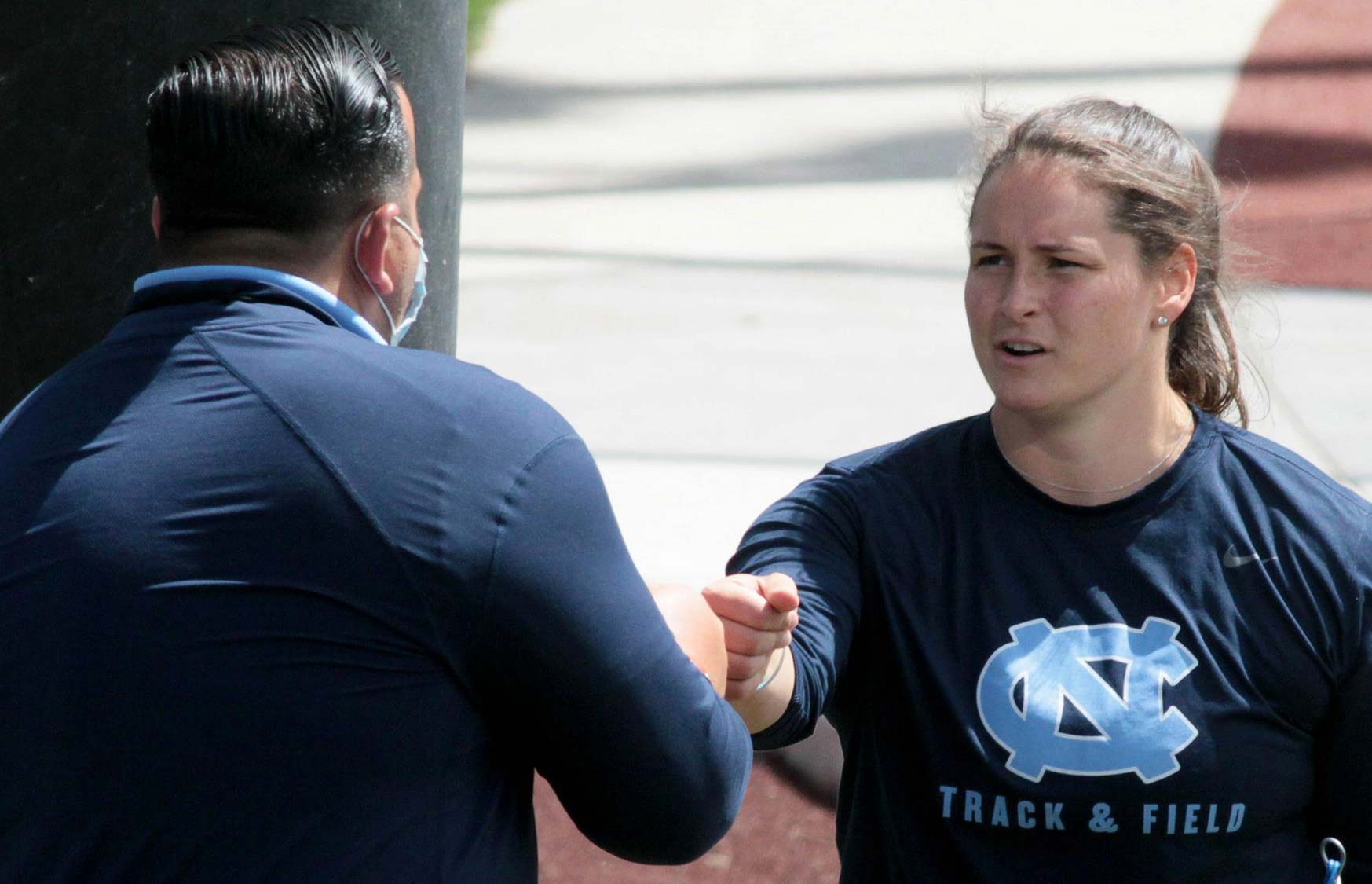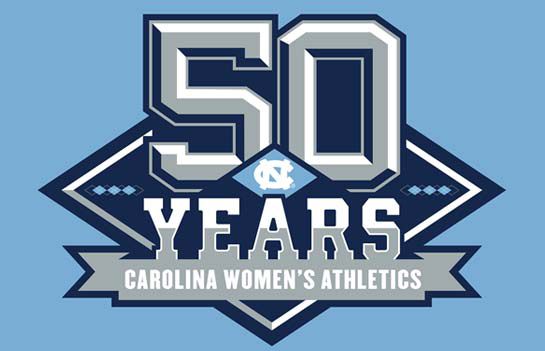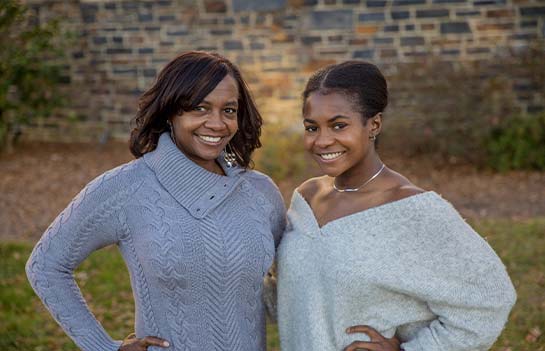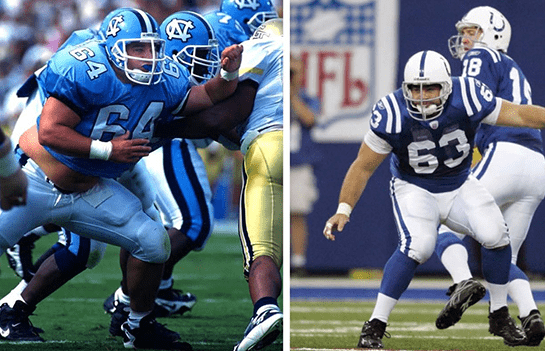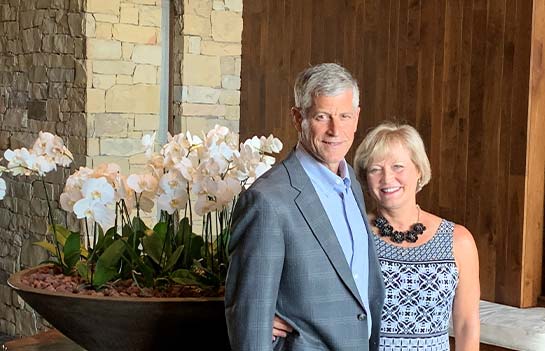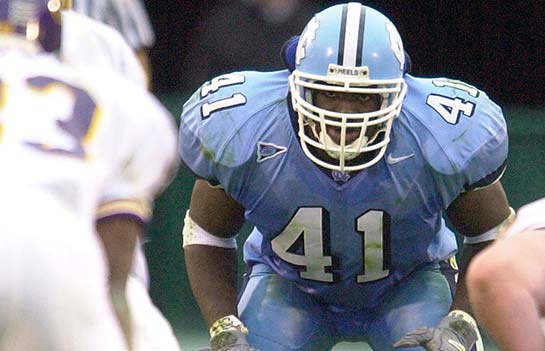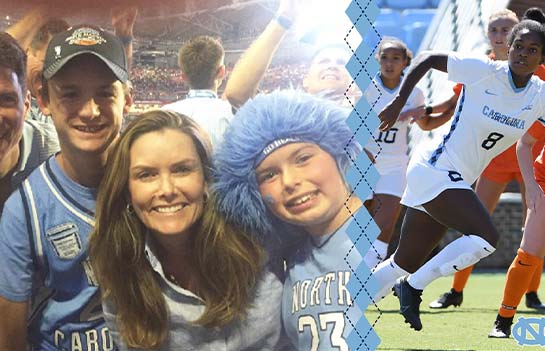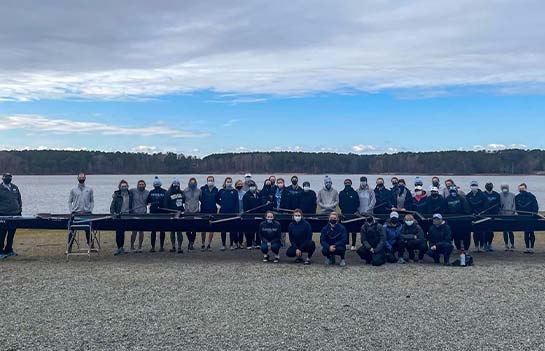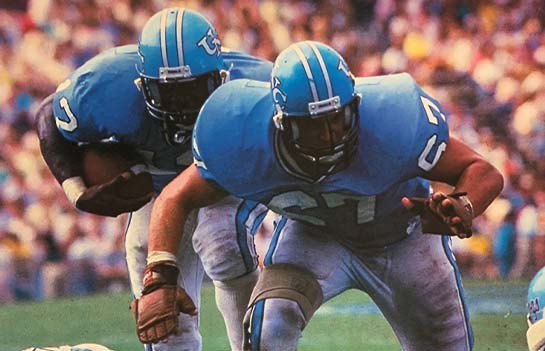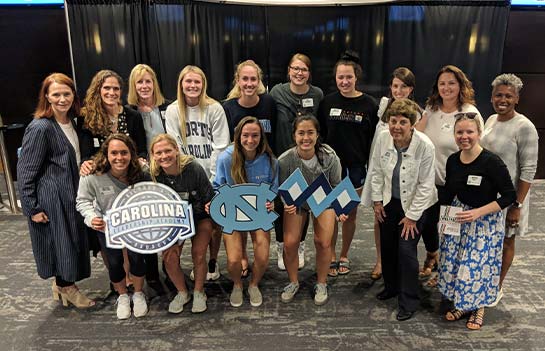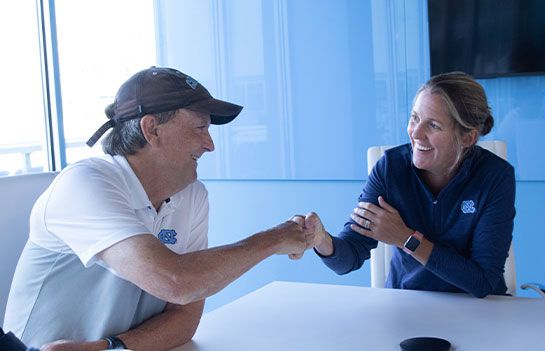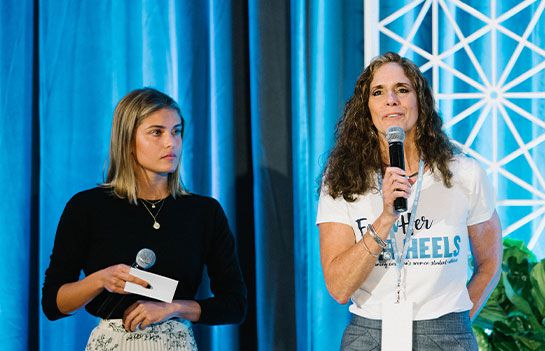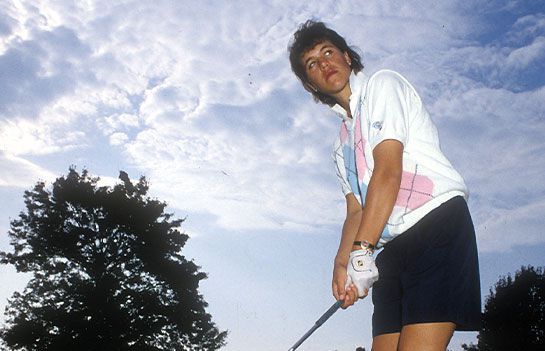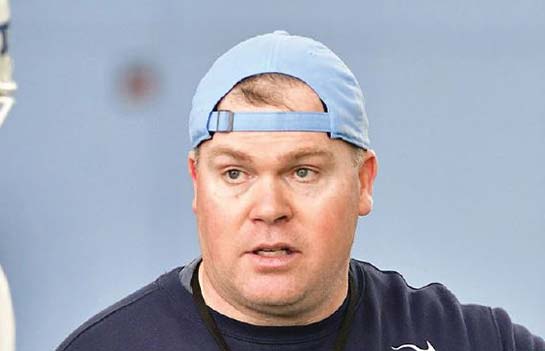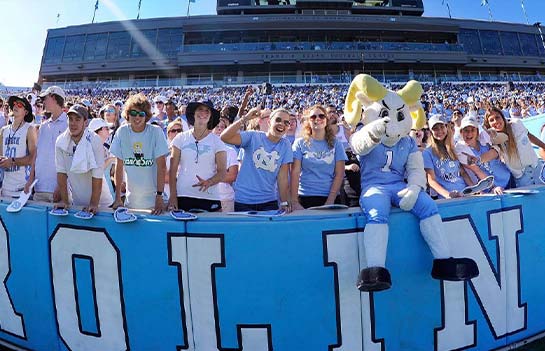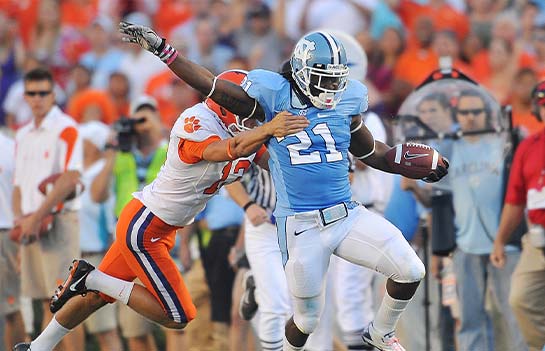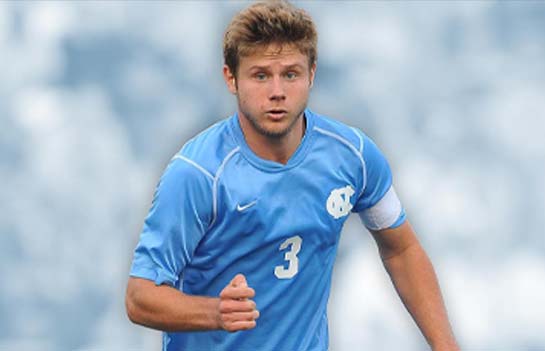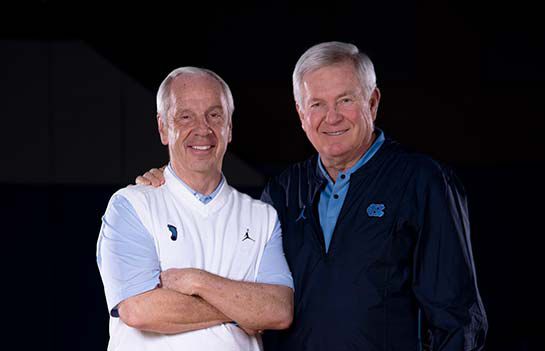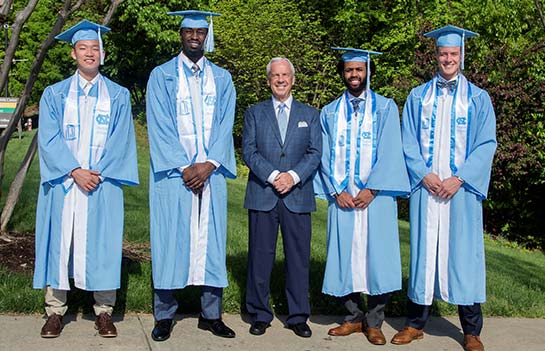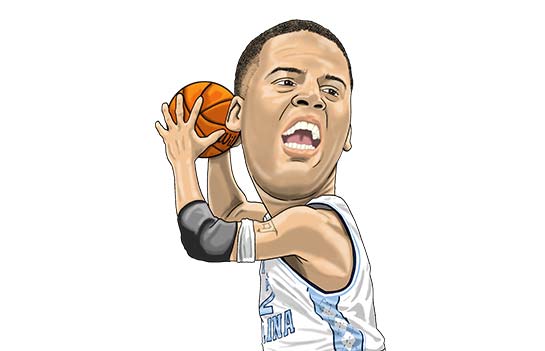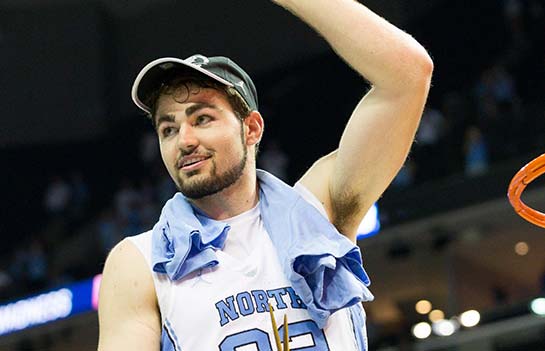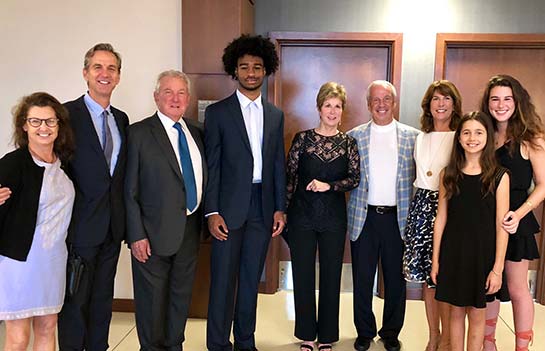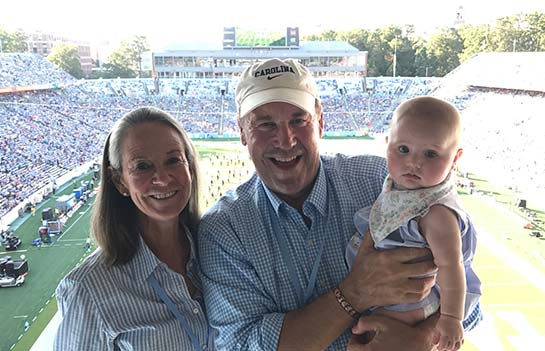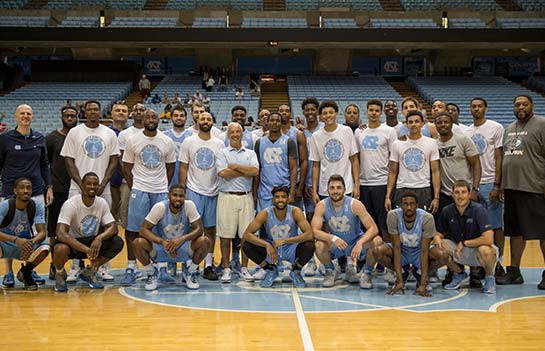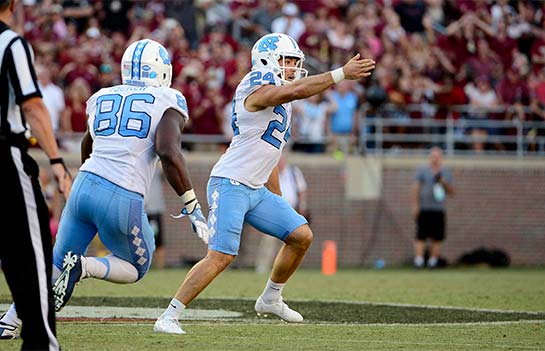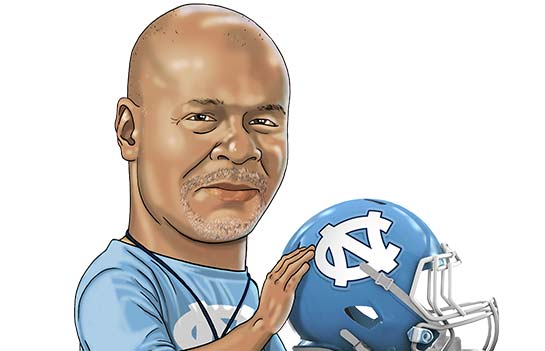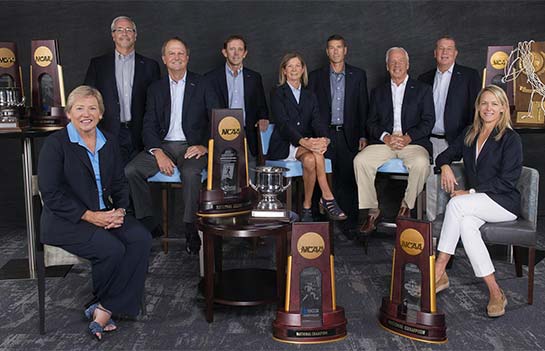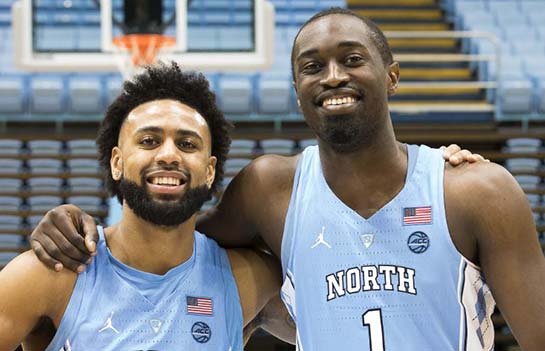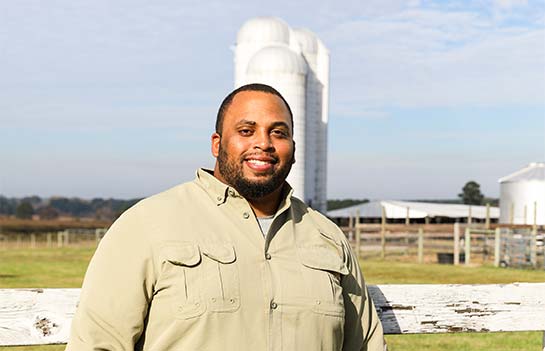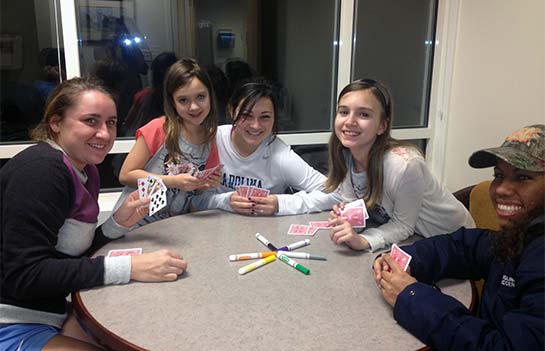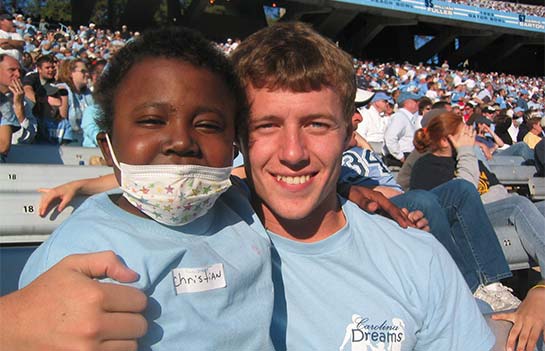“Carolina Family” on Full Display During FORevHER Tar Heels Keynote Panel

The phrase “Carolina Family” is fairly common in the average Tar Heel fan’s lexicon. It's an entirely real phenomenon – a special bond that refers to current and former student-athletes and the diehard fans who cheer them on.
For the past year, the global Carolina Family has come together to support The Rams Club’s FORevHER Tar Heels initiative initiative – an effort that has raised more than $70 million to date to support Carolina’s 15 women’s teams while building a mentoring program to connect women leaders with Tar Heel female student-athletes. Most recently, the Carolina Family came together again on February 3 to celebrate National Girls & Women in Sports Day in support of FORevHER Tar Heels.
Multiple days of events celebrating women in sports culminated with a weekend of events including a keynote panel led by current Rowing student-athlete Jules Micchia. The panel featured several prominent Carolina alumnae: Atlantic 10 Commissioner Bernadette McGlade (UNC ’80), President of Brands and Properties for Wasserman Elizabeth Lindsey (UNC ‘91, JD ‘95), Director of Safe Sport for USA Basketball Whitney Frye (UNC ’07), and Senior Director of Basketball Administration for the Detroit Pistons Britta Brown (UNC ’08).
As part of the keynote panel, McGlade, Lindsey, Frye and Brown were asked a variety of questions about how their respective careers in sports were shaped and how their experiences at Carolina led them to where they are today. The 80-minute conversation with the distinguished alumnae revealed valuable themes for future Tar Heels.
Finding A Passion
All four alumnae found their way into their careers in sports from different backgrounds and through different pathways. While three of the panelists participated in athletics while at Carolina, not all of their first jobs were in the sports industry. For Lindsey, it was a “15 minute” career in journalism; for Brown, it was a non-profit in her hometown of Baltimore; and for Frye, it was handling collections at Bank of America.
Ultimately, for one reason or another, these women did not stay in their first jobs for long. It was clear to them that they were not
Ultimately, for one reason or another, these women did not stay in their first jobs for long. It was clear to them that they were not working in a job that brought tapped into their passion – a point of advice each drove home.
McGlade played for Angela Lumpkin and Jennifer Alley as a member of the Women’s Basketball team at Carolina and was hired out of college as a 23-year-old to become the head coach of Georgia Tech Women’s Basketball. She knew she wanted to become a basketball coach in high school and made the decision while at Carolina to work for different coaches and camps during the summer, which only instilled the confidence in her to continue pursuing her coaching dreams.Ultimately, for one reason or another, these women did not stay in their first jobs for long. It was clear to them that they were not
Frye was driven by passion and a goal-oriented approach. Her career path took her to law school at North Carolina Central, followed by positions North Carolina A&T, the Social Security Administration, and the North Carolina High School Athletic Association before landing her current role at USA Basketball.
Brown’s first job at a non-profit in her hometown of Baltimore was not what she had planned right out of college but was a “blessing in disguise.” Working in the non-profit sector gave her a skillset in business practices and communication that she still leans on today as a sports executive. She realized early on that working for a non-profit wasn’t her long-term passion and that she appreciated a fast-paced work environment. Fortunately, it was that first job that helped her build a skillset she would take with her to future roles.
Lindsey had a life plan, or so she thought. Channeling one of her favorite John Lennon quotes – “Life is what happens to you when you’re busy making other plans” – she recalled being a “Type-A” Carolina student who had all of these guidelines and goals of a certain title by this age, own her own home by another age, and more. It was when she decided to follow her heart instead of her head and asked herself, “Do I care about this? Would this be fun?”, that things started falling into place. After turning down a corporate promotion and following her heart, five days later she earned an opportunity that shaped the rest of her career.
All four were quick to emphasize that they would not be where they are today if they did not chase their dreams and find their passion in their career. All four panelists made it known that passion isn’t the only driver, though. They all agreed on another key component to career advancement: relationship building.
Leveraging Your Network Relationships
While many people tout networking as a key to business success, the four alumnae panelists noted that it was actual relationship-building that helped get them where they are today. Fortunately, they each realized the power of the worldwide Carolina Family and tapped into this community to grow their networks and relationships. All four women noted that some of their closest friends to this day were friends they made at Carolina.
According to Lindsey, the Carolina Family is truly worldwide, especially in the sports industry. One of her colleagues at Wasserman started a list of Carolina alumni who held various positions in the sports industry – a list that ended up being “pages and pages” of contacts. She has come into contact with Carolina alumni across the globe, from Paris to Los Angeles to Shanghai, even running into a random stranger who not only shared the same graduation year, but the two actually shared a course together.
“[Carolina] is that sort of family you don't even know you have but is always there,” she said.
For Frye, who noted that she used to be “kind of shy,” the former Carolina cheerleader developed a habit of talking to everyone and creating relationships, a skill she picked up from her grandfather, a court judge. She has turned simple connections and conversations into lunch meetings and board positions, all because she was willing to talk and establish a relationship. As a native North Carolinian living in Colorado, Frye also encountered fellow Carolina connections away from home and noted that she always loved to get the chance to brag on North Carolina.
Brown, a former Carolina lacrosse player, had a similar sentiment to Frye, noting that the General Alumni Association has been essential in building her network, especially because she has moved several times since graduation.
“I love wearing my Carolina gear and meeting new people,” she said. “When I was in California, I sought out the Carolina Club out there, and I’ve done the same in Detroit. You just cross paths with people and stay in touch. The network is so large that you can run into a Tar Heel by something planned or completely by chance.”
The Carolina Family also played a role in helping McGlade land her first position as head coach of Georgia Tech Women’s Basketball. At the time of her hiring, Georgia Tech’s athletic director was Homer Rice – also a Carolina alumnus. Despite having no previous relationship, McGlade was able to connect with Rice about the Tar Heels and noted that a thread of relationships would continue to repeat themselves throughout the course of her career.
On the subject of relationship-building, all four panelists stressed the need to maintain communication over time as opposed to just calling someone when you need something. They shared that it makes those phone calls when you do need something far easier to make.
“It’s always important to touch base with those in your profession or who have been in your life earlier,” said McGlade, who keeps a communication log in her position as conference commissioner to remind her how long it’s been since she spoke to a colleague or university president. “A phone call is always helpful, even if it’s just a quick conversation.”
Advice for Women in Sports
To close the panel, Micchia asked the four alumnae their biggest piece of advice for women in the sports industry. The answers reiterated the biggest take-home points of the panel.
“Invest in yourself, and invest in your self-confidence,” Frye said. “The strongest voice is the one in your head. Continue to tell yourself that you can do it.”
Lindsey cited fellow Carolina alumnus Michael Jordan. “Let go a little and go with the flow. No doubt the universe is unfolding as it should,” she said. “Michael Jordan once said, ‘I have failed over and over, and that’s why I win.’ You’re going to fail. Your failures will teach you more than your successes.”
McGlade’s advice was simple: “Don’t be afraid to swing for the fences.” Coming out of college, she applied for assistant coach and graduate assistant positions that she did not get. That didn’t stop her from applying to be the head coach at Georgia Tech, which ended up being the first steppingstone for her career.
Brown closed with simple advice: don’t worry. “Don’t worry about the title, the pay, the company, or anyone else’s job,” she said. “Everyone’s process is different. Maybe you need time to learn. Don’t get caught up in the hype of what everyone else is doing after they graduate. Focus on yourself and don’t be stressed. It’s going to be okay.”
FORevHER Tar Heels
Despite coming from different generations and backgrounds, the four women all were eager to support future generations of Tar Heels and make things better for the next generation. You can help Carolina’s female student-athletes as well through The Rams Club’s FORevHER Tar Heels initiative. For more information and to get involved, click here.
More Stories
The impact of giving comes through in wonderful stories about Carolina student-athletes and coaches, as well as the donors who make their opportunities possible. Learn more about the life-changing impact you can have on a fellow Tar Heel through one of the features included here:
